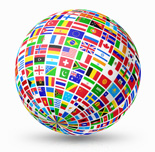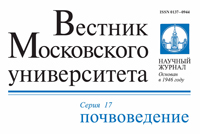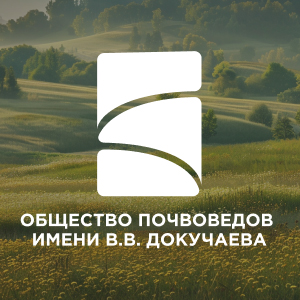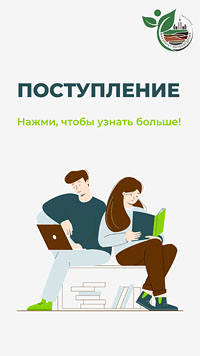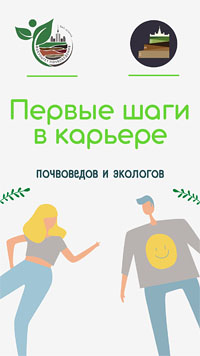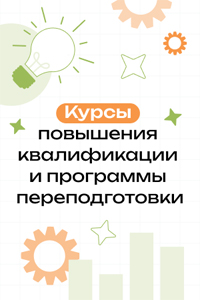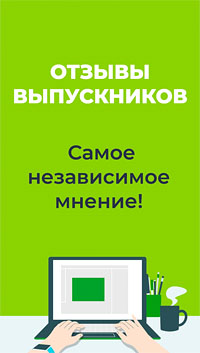About FacultyGeneral: Address: Soil Science Faculty, Moscow State University, Leninskie Gory 1-12, Moscow 119991, Russia
Administration: Acting Dean - Prof. Pavel Krasilnikov (phone + 7 495 939 2947) Адрес электронной почты защищен от спам-ботов. Для просмотра адреса в вашем браузере должен быть включен Javascript. Department office: + 7 495 939 2947 Адрес электронной почты защищен от спам-ботов. Для просмотра адреса в вашем браузере должен быть включен Javascript.
Academic Affairs - Prof. Inna Tolpeshta (+ 7 495 939 50 10) Адрес электронной почты защищен от спам-ботов. Для просмотра адреса в вашем браузере должен быть включен Javascript. Educational Affairs - Associate Prof. Leo Pozdnyakov (+ 7 495 939 34 05) Адрес электронной почты защищен от спам-ботов. Для просмотра адреса в вашем браузере должен быть включен Javascript. International Cooperation - Dr. Olga Yakimenko (+ 7 495 939 21 29) Адрес электронной почты защищен от спам-ботов. Для просмотра адреса в вашем браузере должен быть включен Javascript. Student Practices – Dr Tatiana Malysheva (+7 495 939 17 16) Адрес электронной почты защищен от спам-ботов. Для просмотра адреса в вашем браузере должен быть включен Javascript. Innovations - Dr Setlana Kulachkova (+7-495 939 36 52) Адрес электронной почты защищен от спам-ботов. Для просмотра адреса в вашем браузере должен быть включен Javascript.
Departments of Soil Science Faculty and Heads of Departments: Soil Science - Prof. Pavel Krasilnokov (+ 7 495 939 17 16) Адрес электронной почты защищен от спам-ботов. Для просмотра адреса в вашем браузере должен быть включен Javascript. Soil Physics and Melioration - Prof. Aminat Umarova (+ 7 495 939 36 84) Адрес электронной почты защищен от спам-ботов. Для просмотра адреса в вашем браузере должен быть включен Javascript. Soil Chemistry - Prof. Inna Tolpeshta (+ 7 495 939 50 10) Email: Адрес электронной почты защищен от спам-ботов. Для просмотра адреса в вашем браузере должен быть включен Javascript. Soil Biology - Prof. Alexey Stepanov (+ 7 495 939 36 03) Адрес электронной почты защищен от спам-ботов. Для просмотра адреса в вашем браузере должен быть включен Javascript. Soil Geography - Prof. Sergei Shoba (+ 7 495 939 35 23) Адрес электронной почты защищен от спам-ботов. Для просмотра адреса в вашем браузере должен быть включен Javascript. Agrochemistry and Plant Biochemistry - Prof. Vladimir Romanenkov (+ 7 495 939 35 44) Адрес электронной почты защищен от спам-ботов. Для просмотра адреса в вашем браузере должен быть включен Javascript. Soil Erosion and Conservation - Prof. Oleg Makarov (+ 7 495 939 59 29) Адрес электронной почты защищен от спам-ботов. Для просмотра адреса в вашем браузере должен быть включен Javascript. Agriculture - Prof. Peter Balabko (+ 7 495 939 48 83) Адрес электронной почты защищен от спам-ботов. Для просмотра адреса в вашем браузере должен быть включен Javascript. Land Resources - Prof. Alexander Yakovlev (+7 495 939 44 19) Адрес электронной почты защищен от спам-ботов. Для просмотра адреса в вашем браузере должен быть включен Javascript. Radioecology and ecotoxicology - Prof. Alexey Sheglov (+ 7 495 939 22 11) Адрес электронной почты защищен от спам-ботов. Для просмотра адреса в вашем браузере должен быть включен Javascript.
How to get the Soil Science Faculty
The Faculty of Soil Science is the largest institution in the country, providing education and research in various studies related to soil and environmental issues. The education we offer is fundamental and comprehensive. First, students learn mathematics, physics, chemistry, geology and other essential disciplines. Starting from the 3rd year, our students choose a specialized educational profile in a selected department and compile a research work for their diploma thesis. Our curriculum also includes field training to study soils, landscapes and flora of the main natural areas of Russia. Our graduates are highly demanded in various environmentally-oriented areas. Education
Soil Science Faculty provides undergraduate (BA/BSc, four years), Master (MA/MSc, two years) and post-graduate programs (PhD, four years).
For BSc and MSc degrees we provide two educational programs:
NEW!! MSc “Natural Resources Management for Food Security” taught IN ENGLISH to be launched in September 2024 for details please visit https://openday.msu.ru/soil-en
For Post-graduate studies there are three programs within Biological Sciences (Soil Science, Ecology, and Microbiology) and two programs within Agricultural Sciences (Agrochemistry and Agrophysics).
ResearchVarious research projects in soil science and related environmental sciences are carried out at the Faculty. Eleven Departments provide a wide scope of fields of study:
For assistance and more information, please, contact us
History and Traditions
Soil science is a science studying the regularities of formation and functioning of soils, their environmental functions, their role in the agricultural production and the role it plays in developing of landscapes.
Soil science largely concentrates on assessing land resources, which is especially important nowadays due to the changes in land use patters. Assessment of land resources involves evaluation of soil quality, its economic and ecological assessment and cost estimation. Thus, our graduates take part in the development of national land registration system.
Soil science lays the basis for rational land use, which requires knowledge of soil condition and economic and ecological estimation of land resources, including landscape characteristics and their aesthetic role. A developing branch of soil science is landscape architecture, which creates landscapes with customized aesthetic and functional features. Besides, soil scientists work on solving pollution problems, introduce standards for environmental regulation of land and water resources and forests, study the greenhouse effect and changes in the biological variability. Environmental problems caused by human impact on the environment are the ones of the potential threats to sustainable development both in Russia and abroad. That is why we train highly demanded specialists in ecology. The Ecology& Nature Management program includes theoretical and practical courses in general and applied ecology, the ecology of plants, animals and microorganisms, radiation ecology, toxicology, human ecology, ecological epidemiology, geo-urban planning, etc. Special importance is given to physical and chemical methods of studying the environment, the systems analysis of processes in the biosphere, and environmental management based on environmental expertise, audit, estimation of technogenic systems and ecological risks.
We pay special attention to developing systems thinking abilities in our students, to ensure their comprehensive approach to the human-environment interaction and the impact of natural and technogenic factors on human health. Our students can specialize in environmental expertise, environmental management and audit, environmental chemical and biological control, human ecology and ecological safety. Our graduates can solve a range of problems: make a qualified assessment of various factors that affect the environment, evaluate social and economic activity on multiple territories, make ecological impact estimation for various projects, plan standard measures for environmental protection and rational environmental management, ensure environmental safety in various spheres of human activity, carry out control and audit of the environment, create and implement environmental management systems for industrial enterprises, multiple organizations, administrative and municipal bodies. Our graduates work in various Russian Academy of Sciences institutions, institutions of higher education, ecological services of municipal and governmental bodies, business companies, audit, insurance, and marketing companies.
Soil Science has a long history at Moscow State University. At first teaching of soil science as a university discipline started an MSU in 1906. Since that time Departments of Soil Science belonged to Faculties of Physics and Mathematics (1922-1934), Soil and Geography (1934 - 1939), Soil and Geology (1939 - 1949), Biology and Soil Science (1949 - 1973).
Faculty of Soil Science has been organized at 1973, and now it is one of the 39 Faculties of the MSU. The activity includes both education and research. About 450 undergraduate students and 87 post-graduate students study at the Faculty; more than 150 Professors and Faculties teach and conduct research.
Education
The Faculty provides undergraduate (BA/BSc, 4 years), Master (MA/MSc, 2 years) and post-graduate programs (PhD, 4 years). For BSc and MSc degrees there are two educational programs: Soil Science and Ecology & Nature Management. For Post-graduate studies there are 3 programs within Biological Sciences (Soil Science, Ecology, and Microbiology) and 2 programs within Agricultural Sciences (Agrochemistry and Agrophysics).
For more information, please visit http://soil.msu.ru/eng/admissions
Research
Various scientific research projects in soil science and related environmental sciences are carried out at the Faculty. Eleven Departments provide a wide scope of fields of study: Agrochemistry & Plant Biochemistry; Soil Science (Pedology), Soil Geography, Soil Physic & Melioration, Soil Chemistry, Soil Biology, Agriculture, Soil Erosion & Conservation, Agroinformatics, Land Resources, and Radio-ecology & Ecotoxicology.
For assistance and more information, please, contact us.
|
|
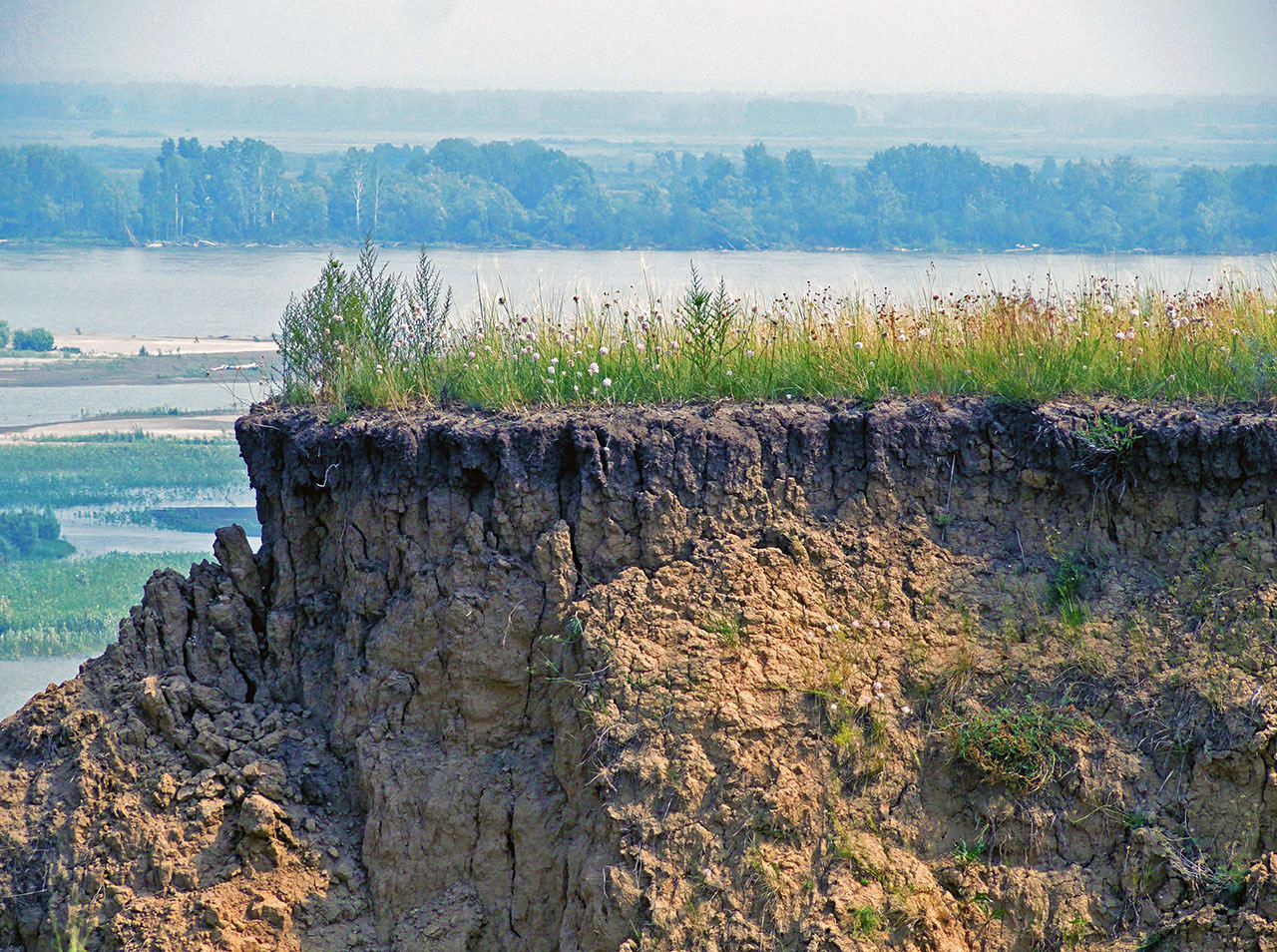 Mission: Sustainable development through environmental research and education
Mission: Sustainable development through environmental research and education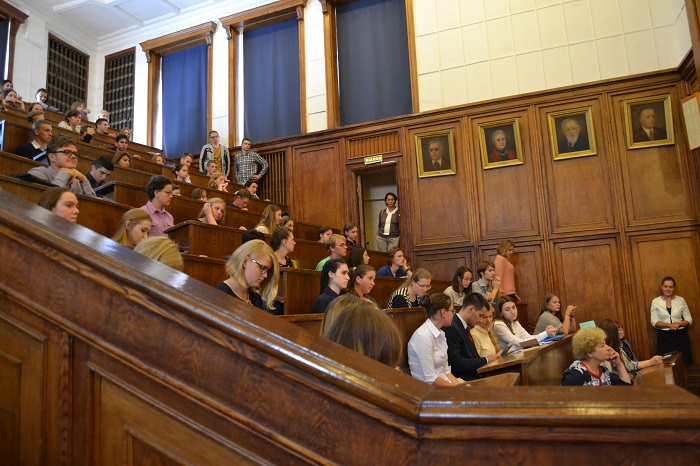
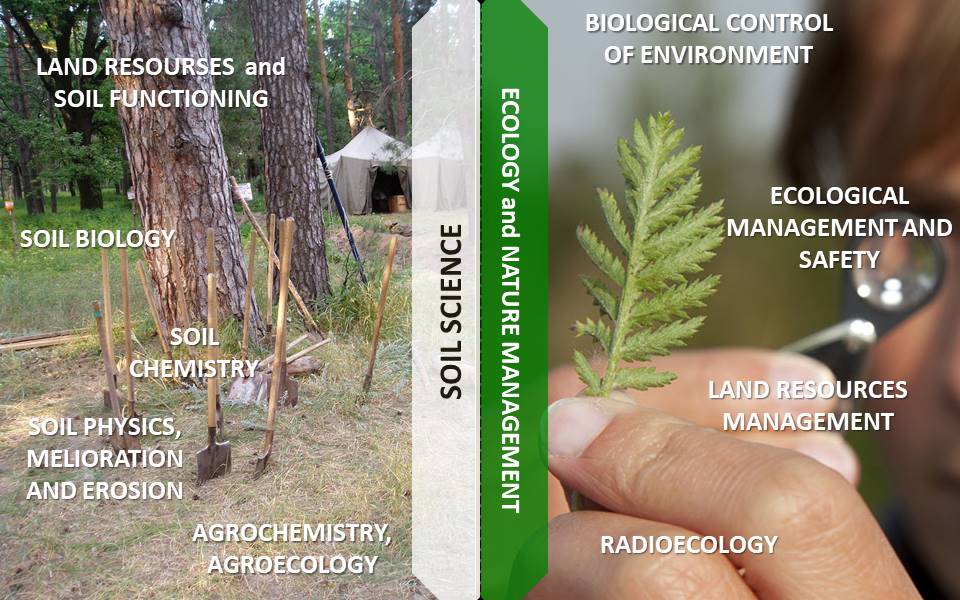

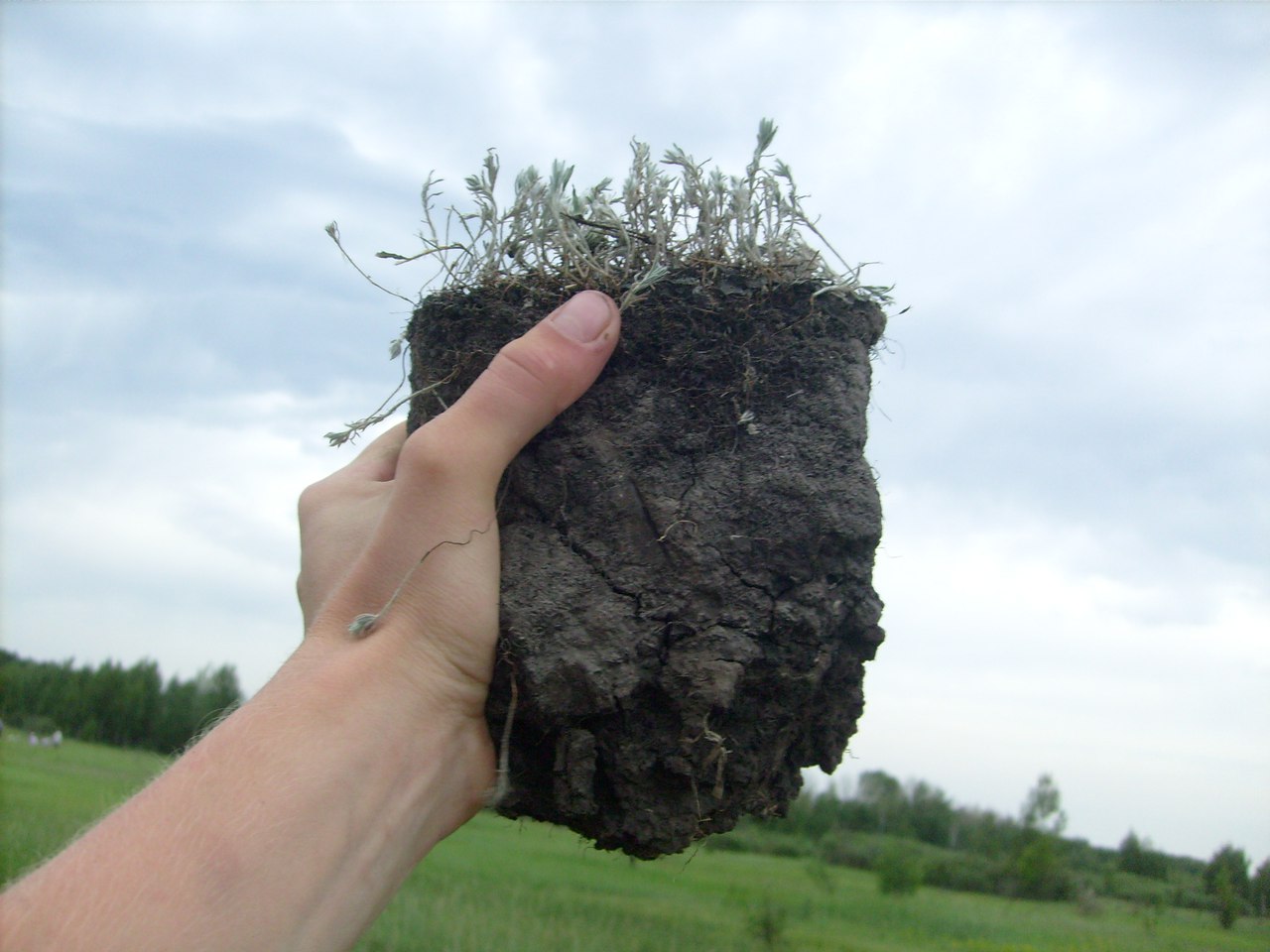 The program in Soil Science is based on the following disciplines: pedology, soil physics, soil chemistry, soil biology, agro-chemistry, etc. A considerable time is devoted to special courses and research work resulting in bachelor’s and master's thesis. An important role is given to the basics of computer science and mathematical modelling of natural and soil processes, students acquiring the necessary computer skills and mastering modern information technologies.
The program in Soil Science is based on the following disciplines: pedology, soil physics, soil chemistry, soil biology, agro-chemistry, etc. A considerable time is devoted to special courses and research work resulting in bachelor’s and master's thesis. An important role is given to the basics of computer science and mathematical modelling of natural and soil processes, students acquiring the necessary computer skills and mastering modern information technologies.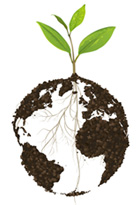
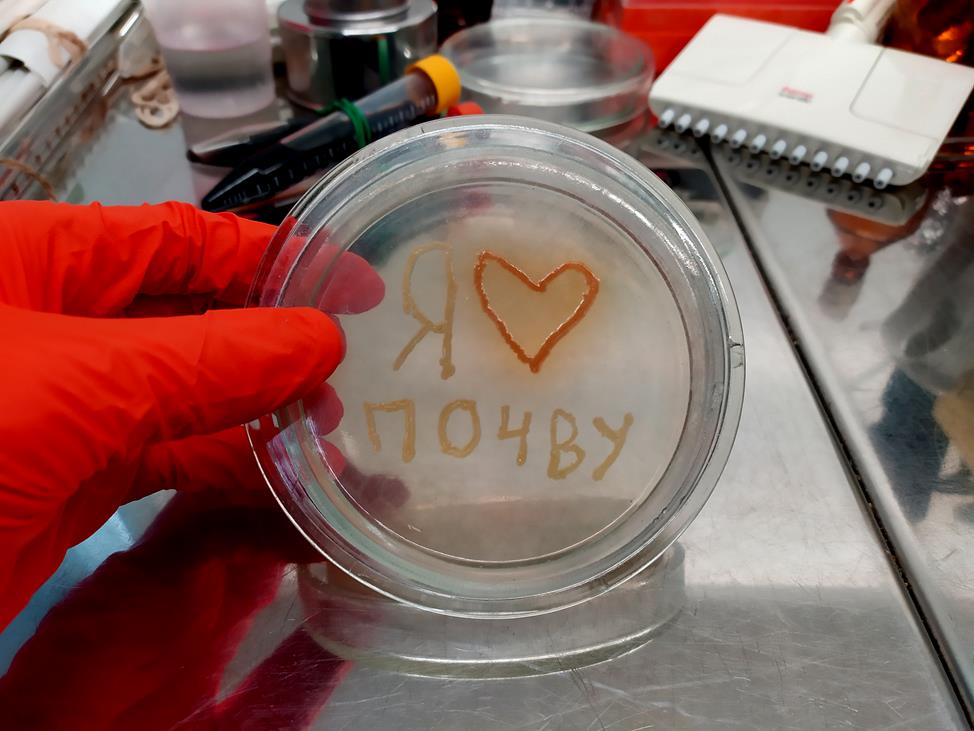 An ecologist should apply modern techniques to environmental studies, forecasting and modelling various natural and anthropogenic processes. That is why our students have thorough training in geoinformatics, geoinformation systems and modelling, computer-based data processing, and remote sensing.
An ecologist should apply modern techniques to environmental studies, forecasting and modelling various natural and anthropogenic processes. That is why our students have thorough training in geoinformatics, geoinformation systems and modelling, computer-based data processing, and remote sensing.
